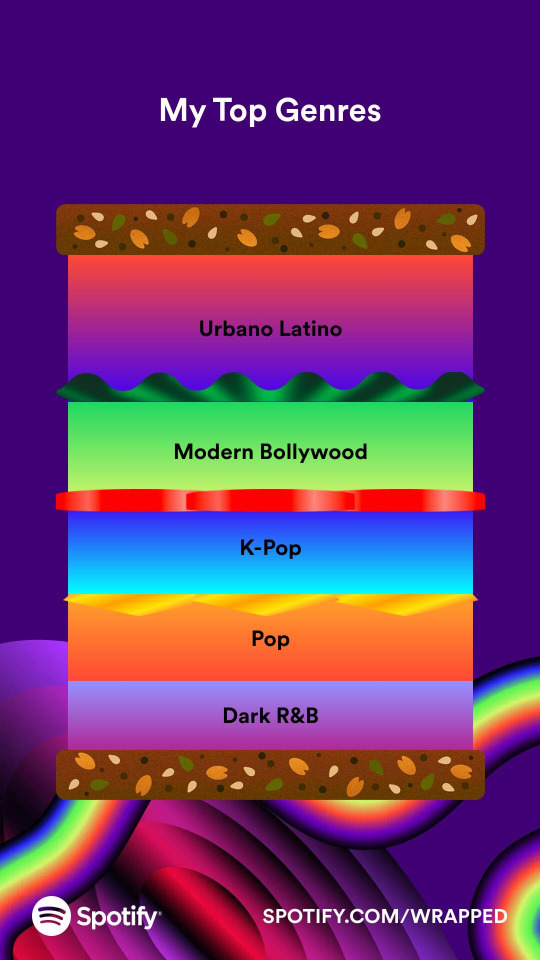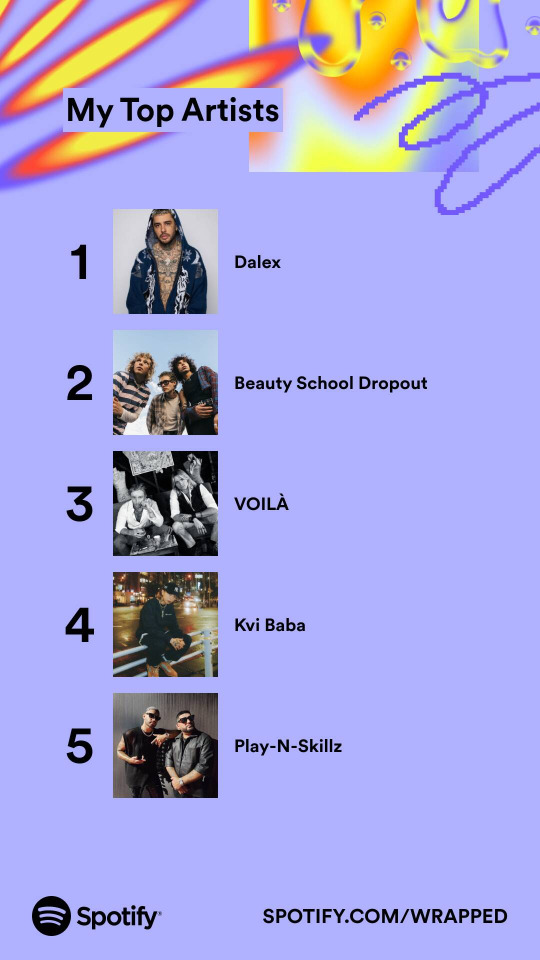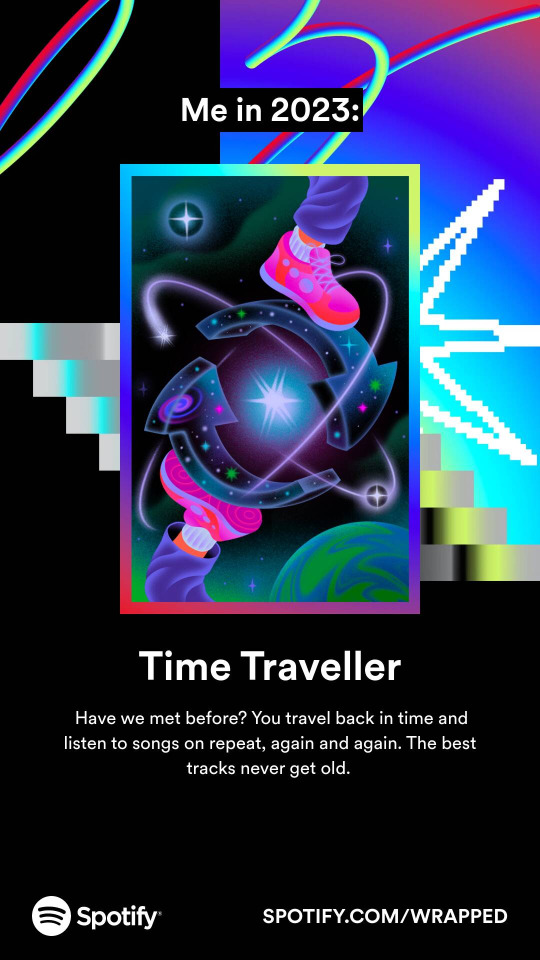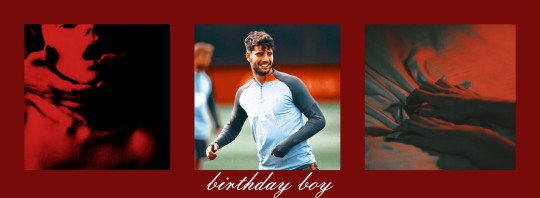#en i baba
Explore tagged Tumblr posts
Text
also moroccan fathers will tell you to listen to french music to improve your french and it's fucking michel sardou again
#can you...do you...is there anything else on your personal playlist....can you.....are we going to listen to en chantant again.....#every single fucking sunday morning he puts la maladie d'amour and shit. him and bpavrd b like#made the mistake of telling my baba i need a language certificate to start assisting cultural mediators and he took it personally#literally wallah his only goal in life is getting me ready to this fucking exam LDKDKKDKF#when we were kids he'd put this song on and when it says elle court elle court > my brother would sing EL CUL EL CUL (the ass the ass)#> insert my baba insulting him in darija#> insert my brother saying ah now we're talking from french to darija swear words#> insert my baba screaming
11 notes
·
View notes
Text








#f.txt#spotify wrapped#dalex top artist once again#i kinda already knew tombi was gonna be n1 but im still like damn did i really listen to it so much.#appears i did#i love my top songs bc it's just. 1. plantcest song 2. sukugo song 3-5. obikin songs#also play n skillz being in my top just bc of literally one song skfhdjgfgfj#actually kvi baba too :o#but yeah en ti was def gonna be there i listened to it a lot#my sound town was quite literally where im from LMAO
7 notes
·
View notes
Text

what would you like to eat today? just pick something—an appetizer, a main course, or a dessert—and a boy (or multiple) of your choice! would you prefer a shrimp cocktail or teriyaki salmon?
you can choose from the following characters/people: formula one, harry potter, criminal minds, and even stranger things! please let me know who you want me to write about! i do also accept pairing + reader, just be specific!
THE RESTAURANT IS NOW CLOSED
the menu:
.
hainanese chicken rice: "i like your...pupils?"
pad thai: "before you say anything about me being at home tonight, i want to remind you that you are too.”
zabaglione: "did you know you talk in your sleep?"
nasi goreng: “since when does your job extend to giving me relationship advice?”
chocolate mousse: "your feet are freezing!"
pho: “you seemed a little off on the phone, so i wanted to make sure you had something nice to come home to.”
kimchi-jjigae: "shit, i forgot to grab an umbrella. i didn't know it was raining"
beef bourguignon: "have you ever been in love?"
macarons: "why are you so jittery?"
flan: "don't worry, i won't tell anyone that my big bad roommate is afraid of a little thunder."
ratatouille: “tell me how you fell in love with me.”
soufflé: “why are you so grumpy all the time?”
quiche lorraine: “you fell asleep in my arms. it was kind of adorable.”
risotto: “can i sleep in your room tonight? is that weird to ask?”
cacio e pepe: "we'll need to do some serious redecorating if i do move in."
dorayaki: "please don't ask me if i'd still love you if you turned into a zombie."
atayef: “i’d love to stop kissing your neck in public, believe me, but it’s all i can reach!”
banana pudding: "i want to stay and watch those stupid nature documentaries. okay?"
shawarma: “look, i got us matching pool floaties!”
mango sticky rice: “it’s not my fault your boxers are so comfortable. besides, it’s not like anyone’s going to know.”
focaccia: "can we do that again? my eyes were closed."
tiramisu: "i left you a note, did you read it?"
pinakbet: “hey, wait up- your collar’s all crooked, let me fix it.”
mooncakes: "we can't keep meeting like this. someone will find out."
ragù alla bolognese: "what do you mean you've never gone trick-or-treating?!"
churros: "i brought you flowers."
mapo tofu: "i did your taxes."
albondigas: "you...you learned how to cook my favorite food?"
teriyaki salmon: "who needs friends? i have you."
crema catalana: "are you jealous?"
rice pudding: "you sure this looks fine?"
sinigang: "i thought you wanted some space?"
rasgulla: "why are you looking at me like that?"
kofta: "yawning whilst trying to convince me you’re not tired tends to have the opposite effect.”
shrimp cocktail: "you're telling me that you've only had one crush your entire life? that's bullshit. tell me who it is."
empanadas: "you smell good."
paella: "are you always this happy?"
pani puri: "you kissed me! you kissed me, how's that not a big deal?"
brownies: "i'm not sleeping in your bed, it hurts when my legs dangle over the edge, you know?"
chiles en nogada: “can i hold your hand? is that weird to ask?”
baba ghanoush: "I would've moved to the floor but you were using me as a pillow."
tempura: "i'm sorry, babe, are those flashcards?"
biangbiang noodles: “weird way to propose but the answer is yes.”
clam chowder: “you’re sleeping on the floor.”
chicken riggies: "stop jumping in those leaves"
chocolate mousse: ”you look—uh, good. you look good.”
haricots verts with herb butter: "you know you can just say 'no' if you don't want to come with me to the party."
roast duck: “are you okay? you look a little…”
leg of lamb: "why did you pick me of all people to haunt?"
cedar-plank salmon: "put the icing DOWN."
french toast: "you can… drink blood from me if you want."
chocolate cake: "am i too close?"
lemon curd: "laundry day doesn’t mean walking around in your underwear, but for you, i’ll make an exception."
bouillabaisse: "jealous? me? pff. never."
.
thank you for participating!! hope you enjoyed <33
#f1 x reader#f1 fanfic#f1 imagine#max verstappen x reader#f1 fic#f1 x y/n#f1 x female reader#f1 x you#f1#oscar piastri x reader#lando norris x reader#charles leclerc x reader#spencer reid x reader#aaron hotchner x reader#harry potter x reader#ron weasley x reader#fred weasley x reader#george weasley x reader#sirius black x reader#remus lupin x reader#james potter x reader#marauders x reader#harry potter fanfiction#criminal minds x reader#stranger things x reader#steve harrington x reader#eddie munson x reader
93 notes
·
View notes
Note
Sabemos que Wukong es un padre vergonzoso que ama mucho a sus hijos y esta demaciado orgulloso de sus muchachos y en lo que han logrado.
Wukong, very proud: "Ah! My sun, moon, and stars! My heavens! My Wuxings!" All the cubs are very embarassed
Por algo suele llamar a sus 5 Cachorros Wuxings porque sus niños son su mundo.
Por lo que cuando ellos conocen a MKgang en la temporada 1 suelen hablar de Sun Wukong y ''Papá'' de forma separada, principalmente para ver si alguno de ellos se dan cuenta de que son los hijos del rey (Principalmente para ser mierdas con ellos... despues de todo son los hijos del rey mono)
Yuebei: Bába se la pasa avergonzandonos todo el tiempo... *Desvia la mirada* Jidu: El rey le gusta ineractuar con los cachorros
Ahora los tres adultos sospecharian un poco de esto ellos no saben que buscar exactamente pero sienten algo sospechoso de ellos, la primera pista es que ellos nunca se refieren a Sun Wukong como ''Abuelo Sun'' que es como todos los monos yao suelen llamarlo.
Otra principal es la actitud principesca de Paramita, algo poco comun viniendo de una poblacion rural afueras me Megapolis (Es solo la personalidad de Paramita...)
Ahora Tang es un compelo Purista de la obra original el nunca creeria de la exitencia de los hijos del rey mono pensaria que son simples OCs.
Imagino que Jidu, Luohou o Luzhen preguntarian de casualidad por estas secuelas al erudito.
Tang: estas secuelas tienen tanta inconcruencias!! Si siquiera estan escritas por el autor! desde cuando Wukong tuvo hijos??! MK y los demas monos: Siiii cuando...??
Solo para que se caiga de cara cuando se revele la verdad... Los principes no dejaran olvidar JAMAS.
Hay algo que acordar es que los registos no suelen ser hechos por la misma persona y no suelen ser fieles a la realidad, Lo unico sierto de los archivos sobre los hijos del rey mono en las secuelas es que es ellos realmente son los hijos del rey mono! solo que no exite madre como tal (No hablemos del rumor de que PIF y Wukong tubieron algo porfavor....)
translated via google;
"We know that Wukong is a shameless father who loves his children very much and is very proud of his boys and what they have accomplished.
Wukong, very proud: "Ah! My sun, moon, and stars! My heavens! My Wuxings!" All the cubs are very embarrassed
There's a reason he usually calls his 5 Cubs Wuxings because his children are his world.
So when they meet MKgang in season 1 they usually talk about Sun Wukong and ''Dad'' separately, mainly to see if any of them realize that they are the king's sons (Mainly to be shitty with them… after all they are the monkey king's sons)
Yuebei: Baba is always embarrassing us… Looks away Jidu: The king likes to interact with the puppies
Now the three adults would be a little suspicious of this, they don't know what to look for exactly but they feel something suspicious about them, the first clue is that they never refer to Sun Wukong as ''Grandpa Sun'' which is how all the yao monkeys usually call him.
Another main one is Paramita's princely attitude, something unusual coming from a rural town outside of Megapolis (It's just Paramita's personality…)
Now Tang is a complete purist of the original work, he would never believe the existence of the monkey king's children, he would think that they are simple OCs.
I imagine that Jidu, Luohou or Luzhen would ask the scholar about these sequels by chance.
Tang: These sequels have so many inconsistencies!! They're not even written by the author! Since when did Wukong have children??! MK and the other monkeys: Yesssss when…??
Only to fall flat on his face when the truth is revealed… The princes will never let us forget.
One thing to remember is that records are not usually made by the same person and are not usually true to reality. The only thing that is certain about the files on the Monkey King's children in the sequels is that they really are the Monkey King's children! It's just that there is no mother as such (Let's not talk about the rumor that PIF and Wukong had something please…)"
--
Hehehe!!! More talk about the "Wuxing Au"!
Wukong is very proud of his cubs, and also very embarrassing!! He calls them every pet name under the sun - particularly "Wuxing" since he sees his five cubs as important as the five core elements of the universe.
MK already knows who the five monkeys' "baba" is, but he doesn't want to reveal their secret identities to the rest of the gang without their permission.
The siblings are convinced that it would be the twins or Luzhen who "break character" first - only for it to be cool-headed Paramita, furiously defending his baba's honour when Pigsy bad-mouths him during S2.
Though in the meantime they love tormenting Mr Tang with questions about the non-canonical sequel books to Jttw. >:3
Paramita is a bit too quick to agree with Mr Tang that the rumoured affair between Sun Wukong and Princess Iron Fan was; "Completely impossible." - but he covers up his anger by saying that he really doesn't like the ship (like he's speaking about a fanfiction). The eldest cub knows how his Baba made him on his own from clay. XD
And although the sequels weren't entirely accurate - different writers from different eras and locations putting together detail they'd heard - They do get the names of Wukong's five children correct!
#lmk wuxing au#wuxing au#sun wukong#dad sun wukong#lmk mk#qi xiaotian#lmk king paramita#lmk yuebei xing#lmk jidu & luohuo#lmk lunar nodelets#lmk sun luzhen#lmk tang#lmk aus#lmk#lego monkie kid
35 notes
·
View notes
Text

Contemporary BaBa Yaga house has little legs!


Wow, another Airbnb up for sale (I even checked and the listing has been removed). BUT, the realty is selling raffle tickets for a 2 night stay in it at $20 a pop. It was built in Ransom Canyon, Texas, and was recently redone. 3bds, 3ba, $2M + $60 yearly HOA fee. Take a look at this unique home.


Check the entrance out. Love the swirls and colored glass windows.

If you can walk on the area to the right, it definitely needs a railing.

Look at the powder room door.

Wow, check out the living room and those windows. I don't know if the furnishings convey b/c the description doesn't specify.


I'm lovin' this, it's like living inside a maze or something. Notice that the curves seen to be shaped from strips of thin wood & metal.

Beautiful view of Ransom Canyon Lake.

Spacious dining room is above the living room.

If you're looking for a huge, elaborate kitchen, this isn't it. But, it's fully equipped and gets lots of light from the big window.

This is cool- a counter for everyday dining right in front of the window.

I also like the artsy metal rods.


The primary bedroom has lots of beautiful stained glass and stairs to the 2nd level.


Check out this bath. Nice large shower and lots of curves and color.

The secondary bedroom is also beautiful.

Wow, look at this.

Look at the glass arch on this bedroom.

Double doors and a great view. All of the bedrooms have different features.

En-suite for this room.

Isn't this amazing? They didn't scimp on the other 2 bds.

This is crazy- look at the sculpture. There's a coffee bar and mini fridge left over from the Airbnb days.

The stairs come up to this bath.


There's no yard, per se, but it does have this terrace with a view of the lake.
157 notes
·
View notes
Text
BÖYLEDE ŞİİR YAZILIR MI....
HESAPLAR BENDEN
Usta bana iki yürek arası
Biraz sevda sarıver
Ama, içinde acı olmasın.
Sosunu da mutluluktan sürüver
Tadı damağımda kalsın.
Yanına bir şişe de şarap aç
İstemem çerez falan
Mezesi şiir olsun.
Aşk Cemal Süreya ’dan
Özgürlük Nazım ’dan olsun.
Savursun küfürleri Can Baba
Kötülerin gelmişine geçmişine..
Ataol Behramoğlu
"Ne çok hain var" desin bu ülkede.
Ve Orhan Veli,
İstanbul ’u anlatsın bize
Gözleri kapalı ..
Özdemir Asaf ’ı da unutma ha..
Anahtar onda.
Sonra kalırız dışarda.
Şükrü Erbaş’ı, Abbas Sayar’ı
Rıfat Ilgaz’ı ,Ahmet Arif ’i
Hele de
Hasan Hüseyin,
Olmazsa olmazıdır
Kavganın direnişin.
Sevdiğim bütün şairleri istiyorum
Bu gece.
İçelim birlikte şiirin şerefine
İşte o demde,
Değmeyin benim keyfime.
Ve en güzel şarkılar,
Eşlik etsin arka fondan
İçinde ayrılık hasret olmayan.
Gel otur yanıma usta
Yalnız gitmez bu meret
Kendine de söylemeyi unutma
Kafamız güzel olunca,
Güler ağlarız birlikte.
Bitince gece,
Sızarız bir köşede.
Ama itiraz istemem
Bütün hesaplar benden...
Melahat çetinkaya

youtube
youtube
youtube
youtube
youtube
Sizlerde eklerseniz sevdiğiniz şarkilardan çok sevinirim 🙏🐸
youtube
50 notes
·
View notes
Text
youtube
youtube
*REMINDER: Vote for the SONG you think is HOTTER, not the song you prefer or the artist you think is hotter.
Propaganda for "La Vie En Rose": none Defeated Opponents: "Who Do You Love?;" "Daddy Cool;" "Here I Am (Come and Take Me)"
Propaganda for "I Don't Know": "Ruth Brown’s voice has me melting like butter. No one else can make indecision sound so appealing." Defeated Opponents: "Louisiana Woman, Mississippi Man;" "Baba O'Riley (Live;)" "Corazón Contendo"
16 notes
·
View notes
Text
𝐛𝐢𝐫𝐭𝐡𝐝𝐚𝐲 𝐛𝐨𝐲 - 𝐝𝐨𝐦𝐢𝐧𝐢𝐤 𝐬𝐳𝐨𝐛𝐨𝐬𝐳𝐥𝐚𝐢
• 𝐫𝐞𝐪𝐮𝐞𝐬𝐭𝐞𝐝 𝐛𝐲: 𝐭𝐡𝐞 𝐦𝐚𝐬𝐬𝐞𝐬!!
𝐬𝐲𝐧𝐨𝐩𝐬𝐢𝐬: 𝐭𝐡𝐞 𝐛𝐢𝐫𝐭𝐡𝐝𝐚𝐲 𝐛𝐨𝐲 𝐠𝐞𝐭𝐬 𝐰𝐡𝐚𝐭 𝐡𝐞 𝐰𝐚𝐧𝐭𝐬!
𝐭𝐫𝐢𝐠𝐠𝐞𝐫 𝐰𝐚𝐫𝐧𝐢𝐧𝐠: 𝐭𝐡𝐢𝐬 𝐢𝐬 𝐛𝐚𝐬𝐢𝐜𝐚𝐥𝐥𝐲 𝐩*𝐫𝐧 𝐰𝐢𝐭𝐡 𝐚 𝐭𝐞𝐞𝐧𝐲 𝐭𝐢𝐧𝐲 𝐬𝐩𝐫𝐢𝐧𝐤𝐥𝐞 𝐨𝐟 𝐩𝐥𝐨𝐭.
𝐚𝐮𝐭𝐡𝐨𝐫'𝐬 𝐧𝐨𝐭𝐞: 𝐡𝐚𝐩𝐩𝐲 𝐛𝐢𝐫𝐭𝐡𝐝𝐚𝐲 𝐝𝐨𝐦𝐢, 𝐦𝐚𝐲 𝐭𝐫𝐞𝐧𝐭 𝐬𝐡𝐨𝐰𝐞𝐫 𝐲𝐨𝐮 𝐰𝐢𝐭𝐡 𝐚𝐥𝐥 𝐭𝐡𝐞 𝐥𝐨𝐯𝐞 𝐭𝐡𝐞𝐫𝐞 𝐢𝐬 𝐭𝐨 𝐠𝐢𝐯𝐞 😘

" Angyalok, where are you? "
She heard his deep voice echo through the living room while she was in the en-suite bathroom adjusting the maroon lingerie set she had purchased, the details were a mixture of lace and silk that complimented her skin tone; once she was certain that everything was in place - she covered her surprise with one of his Leipzig jersey's she had lying around just as she heard his footsteps inside of the bedroom, " Baba? "
She inhaled a deep breath then exhaled before leisurely treading out to face him, with a soft and seemingly innocent smile across her crimson coated lips. " There's the birthday boy "
His face lights up in joy and relief, " Didn't you hear me? " he wonders as he pressed a kiss to her forehead.
The gesture sent flutters straight through her heart; just then she looks up at him and replies, " I did but I wanted to adjust the surprise I had "
His brows knit in pure confusion, " Surprise? " he echoed.
She nods, with a visible beam across her features. " Domi, do you trust me? "
He smiles, " Of course I do baba, why do you ask? "
" Sit at the edge of the bed then " She responds, gesturing to their bed.
He glances at the bed then back at her, " Édesem? "
Her eyes widen, a trick she often used on him whenever she needed anything, her lips pucker in a pout as she said. " Domi, sit at the edge of the bed, pretty please "
He chuckles then shrugs, " Alright, I'll bite " he treads towards the bed, sitting at the edge. " Now what? "
Three minutes had passed before she finally walked up to him, she stood between his legs; tentatively caressing his stubbled cheeks with her hands eliciting a soft half sigh half moan from him, " Baba? what are you doing? "
" It's 12:00am, which means it's October 25 " She starts with a soft tone, her thumbs caress the apples of his cheeks, the action eliciting a smile from the two of them. " which also means it's your birthday " she leans in to press a kiss on his head.
He breathes out a soft sigh, resting his forehead on her abdomen, his hands reaching in to knead the soft skin before she swats them away, he lifts his head up and pouts, " Baba, why did you do that? "
She giggled in response, leaning in to peck his lips, " Because I have a surprise ... " just then, she kneeled down to her knees in front of him.
His eyes widened, a surge of crimson coating his cheeks, his breaths grew labored; he swallowed a visible lump in his throat. " Kislány " he whispers.
Her hand palmed him through the front of his pants, eliciting a low whine from him. " I've always wanted to do that " she whispers, mostly to herself; just then, she gently pulls both his pants and boxers to free him from the restriction, her gaze is momentarily fixated on the tip of his cock, pleading for attention, she looks up at him to add on, " Can I Domi ? " she whispers.
He chuckles softly, his digits threading through her hair," Do you even have to ask édes lepke? "
She smiles, tentatively wrapping her petite hand around the sensitive skin. " Is this alright? "
A strangled moan erupts from his lips followed by a gasp, " It's more than alri- Oh Fuck! " his eyelids flutter shut, he leans his head back to allow himself to truly relish in the moment; his digits continue to stroke her hair, " Oh baba, you're taking my cock so well in your mouth "
She'd taken as much of him as she could while her free hand stroked the rest to create an even rhythm, she looks up and in that moment, she wished she could frame the sight she saw in her mind for all eternity, her boyfriend was undone entirely, his brows knit with his eyes tightly shut; labored breaths erupting from his parted lips, the mere sight shot waves of desire straight to her pulsing walls that craved his tongue.
He struggled as she'd thrust her warm lips in and out, coating his length with her spit; all of a sudden, he felt tongue lick a stripe through the underside causing his eyes to widen, " Baba " he sighs, whimpering. " Istenem, annyira jó vagy ebben, Istenem ... "
The sounds they made in unison were enough to spur her into using her free hand to caress her swollen pussy, the action catching his attention. " Baba, I'm going to cum "
She pulls back, with only the tip buried inside of her mouth; her hand stroked at a rapid pace, while her tongue licked stripes against his slit to spur him on.
" Fuck, yes baba ... that's it " He cooed, caressing her hair before pulling it into a makeshift ponytail; just then, he tenses, letting out a deep groan before muttering, " Milyen édes kislány, hogy így vigyáz rám "
She laps up every single bit before pulling back, a trail of spit connecting her lips to the tip of his cock; just then, without so much of a warning, she's hoisted up to his lap. " Did you like the first part of your birthday gift? " she wonders, giggling when he attacked her neck with gentle kisses and bites.
" There's a second part? " He echoes, lifting his head up to look up at her curiously before adding on with a laugh, " I mean, what else could top you sucking the day light out of me with those gorgeous ... " he pecks her lips, " lips you got "
Instead of responding, she lifts the hem of his jersey, lifting the material over her head to reveal the 'surprise' she had on, his gaze trails over her figure before darting back up to her eyes, she smiled sweetly. " Well? "
He slammed his lips onto hers, soft groans emitting from him. " You'll be the death of me pillangó " he whispers against her lips.
She giggled then replied, " We can't have that happening to the birthday boy, now come on " she interlocked their hands together, looking down for a moment before adding on. " Don't you want to unwrap your gift? "
He lifts both of her hands, peppering them with soft pecks before he muttered. " I thought you'd never ask "
She lifts his t-shirt over his head, cradling his face between her hands while his diligent digits unclasp the bra; moving on to untie the small knots which loosened the material for him to slip it off of her, his lips pull back to trail kisses across her jaw, down to her neck, to her shoulder and then down to her breasts, one hand caresses and squeezes one while his lips wrapped around the other, she sighs softly, " Domi " - He grunts in response, rolling his tongue around her nipple in a circular motion before directing his attention to the other one.
Once he was satisfied with his work, he lifts his head up to capture her lips back in a searing kiss, he pushed her onto the bed, her back hitting the mattress while he proceeded to undress himself entirely then her, he caged her in his arms while they continued to exchange passionate kisses; suddenly, he pulls back to rest his forehead over hers. " Baba "
She hums in response, " What is darling? "
He smiles, pecking her lips before he caressed her soft cheek with his hand. " Szeretlek, jobban szeretlek, mint ahogy igazán ki tudom fejezni, édes lányom "
She wasn't a stranger to the times he would choose to speak in his mother tongue; while she'd often not understand some of what he says, in this very moment - his gaze spoke more of the meaning behind his words, she wraps one arm around him to tug him into a sweet kiss before whispering, " Domi "
" Igen, édes kislány " He murmurs, pecking her lips a few times.
" I need you " She said, with a soft almost inaudible tone. " Please! "
His eyes flutter a shut; a deep groan erupts from him. " I thought you'd never ask " he whispers, " however, I have a condition since it is my birthday, and I get what I want "
She smiles, " Go ahead then, birthday boy? "
He lies down next to her, gesturing to his lap which prompted her to giggle, climbing on top of him. " Ride me édes kislány, ride my cock "
Excitement lights up her features at his request, she adjusts her position, using her hand to guide his cock inside of her slick walls, the pair moaning in unison at the deliciously torturous friction. " Fuck Domi " she whines.
" I know kicsikém " He groans, reaching over to rub her clit with his thumb. " Every time is better than the last, your pussy was made for me kicsikém "
She composed herself before setting the perfect pace for the two of them, " Domi, you feel so good "
" So do you ... your perfect pussy wrapped around my cock " He sighs, lifting himself up to busy himself with tending to her breasts.
Her thrusts grew rapid, so much so that the room was full of the sound of skin to skin contact, " Domi " she whispers, biting her lip.
" You're going to cum hm? I can feel you squeezing my cock kislány " He whispers in her ear before pressing a kiss behind her ear.
" Oh my god, I'm close " She whimpers, her eyes brimming with tears. " Fuck Domi, just like that "
He ups the friction on his end, his lips parted releasing labored breaths and groans, " Baba, cum for me " he moans in her ear. " Let's cum together, I'm right there with you "
His thrusts weakened; their lips reconnected immediately before a muffled moan escaped from the two of them, followed by them collapsing on top of the bed - two minutes had passed before he tugs her close to him to kiss her once more then whisper, " Thank you for this lovely present baba "
" My pleasure " She beams.
They lay there, gazing into each other's eyes with pure adoration before he broke the silence by whispering, " I'm in the mood for a shower? "
The undertone behind 'shower' elicited a giggle from her, " A shower? as in .... "
He smirks, " as in me fucking you senseless there, so yes or no? "
" You won't find any rejecti- Oh my god " She laughs the moment he hoists her up in his shoulder taking her into the bathroom.
" You said it's my birthday, and I'm going to take full advantage of that " He smiles.
#dominik szoboszlai#dominik szoboszlai imagine#dominik szoboszlai smut#dominik szoboszlai one shot#dominik szoboszlai fanfiction#dominik szoboszlai fic
131 notes
·
View notes
Text

GAZZE'YE DEĞİL SİZ KENDİNİZE AĞLAYIN...
Dünyada nüfus oranına göre, en çok kitap okuyan GAZZEDİR.
Dünyada en çok hafız yetiştiren GAZZEDİR.
Dünyada tarihini unutmayan kinini en diri tutan şehir GAZZEDİR
9-10 yaşına gelen bir çocuk Kuran'ı Kerim hafızı olur.
HAMAS'ın askeri kanadı olan İZZETTİN EL KASSAM TUGAYLARI'na katılmanın ilk şartı KUR-AN-I KERİM HAFIZI olmaktır.
Hafız olmayanların eline silah vermiyorlar.
Kaza namazı olanları cepheye göndermiyorlar.
Cephe gerisinde savaştırıyorlar.
Siz bu ordunun yenileceğini mi sanıyorsunuz ?
Şehadet aşkıyla yanıp tutuşuyorlar.
Ölüme gitmeyi, düğüne gider gibi sayıyorlar.
İ.T.Ö. yaşamayı severken, HAMAS ölümü, şehadeti seviyor.
HAMAS, yenilmez. Ölür şehit olur ama asla yenilmez!
Siz kendinize ağlayın, kendi imtihanınızı tam veriyor musunuz diye ağlayın.
Senin namusun olan MESCİDİ AKSA yı koruyan müminlere MADDİ OLARAK sahip çıkmadığına ağla.
Kendi çocukların bilmem kaç yaşına gelmiş, KUR-AN-I KERİM okumasını bilmiyor, sen buna ağla.
Evinde hiç KUR-AN-I KERİM okunmuyor, buna ağla.
Hiç namaz kılınmıyor, buna ağla.
Çocukların kimin peşinden gidiyor, kimi örnek alıyor, siyonistlerin kültürel savaşında katlediliyor, bunu gör ve buna ağla.
5 yaşında, bombaların altında olan çocuk babasının yanına geliyor ve diyor ki;
Baba, hafız olmadan ölmek istemiyorum.
Keşke daha önce hafız olsaydım, öldüğümde hafız olarak Allahın huzuruna çıksaydım.
Çocuktaki derde bak, bir de bizdeki bizim çocuklarımızda ki dertlere bak...
Yine diyorum,
TÜM DÜNYA BİR ARAYA GELSE DE HAMAS YENİLMEZ, çünkü iki türlü de olsa, onlar için tek yol zafer!
ALLAH YARDIMCILARI OLSUN...alıntı
79 notes
·
View notes
Text
Romanian witches: Baba Cloantza
Last time I talked about Muma Padurii, the Forest Mom. And I promised you Baba Cloantza...
The whole idea of the Baba Cloantza is quite fascinating. When I read the article about the Romanian translations of Frau Holle which prompted me to do this series about Romanian witches (I'll talk more about this in the third part of the series), they evoked Baba Cloanta (yes, without the "z") as the traditional wicked witch and child-eating hag of Romanian fairytales. If you do research about Muma Padurii, you will sometimes find that "Baba Cloanta" can be an alternate name or identity for the Muma, especially in her "creepy wicked witch eating children soup" fairytale self. But if you research Baba Cloanta/Cloantza on her own, most of the time all you'll find is a mention saying "Baba Cloantza is the Romanian name of Baba-Yaga" or "Baba Cloanta is the Romanian equivalent of the famous Russian witch / she is the Carpathian Baba-Yaga".
Now... I do understand why everybody loves Baba Yaga, but I also understand why having Baba Yaga everywhere can be a problem. There is a reasoning behind saying "Baba-Yaga is a character present throughout all Slavic fairytales" and "Baba Yaga is a character of Eastern Europe fairytales"... But this oversimplification can cause a problem when it sweeps under the rug national "cousins" of the Baba Yaga. Again, remember that the Baba Yaga we know today was defined and shaped by Afanassiev's Russian Folktales... It is a specifically Russian character. Yes she does answer to and manifests an archetype present throughout Eastern Europe, and you have several Eastern European manifestations of a local Baba-Yaga... But then you have characters like Baba Cloantza. Who is indeed an equivalent to the Russian Baba Yaga... But she is still her own character, a specific Romanian entity, and saying she is just "Baba Yaga with a different name" can be a quite problematic claim...
So today I invite you to discover Baba Cloantza, a Romanian witch which yes, can be the Romanian translation of "Baba Yaga", but is also an alternate identity of Muma Padurii, as well as her own character with specific roots in Romanian folklore.
For this post I will rely onto an article written in French by Simona Ferent, "Baba Cloantza, la Yaga édentée" (Baba Cloantza, the Toothless Yaga) - it was published as part of a collection of studies and articles around the figure of Baba Yaga for a Sciences and Literature journal (it was called "Baba Yaga en chair et en os", "Baba Yaga in flesh and bone"). I literaly translated the article a long time ago and I do regret doing so because it might have made it quite unreadable... But if you can read French go check it out because it is one of the most complete resources I could find about Baba Cloantza online.
It is also because of this article that I write Baba Cloantza instead of "Cloanta", which Ferent highlighted as a better transliteration of the Romanian Cloanţa.
Baba Cloantza is one of the central witches of Romanian fairytales, and a well-known figure of the Carpathian folklore. But there is already a difference established between her and the Russian Baba-Yaga by her very name. Indeed "Cloantza" means an old woman, an ugly woman... a toothless woman. Hence the name of the article, "the toothless Yaga". Not only does this name evokes a toothless hag, it also insists upon her mouth, because "cloantza" is a pejorative name for a mouth. So the Baba Cloantza is a figure associated with the mouth - as much the decrepit toothless hole of an old ugly woman, as the devouring maw of the fairytale monster... and as the mouth from which ancient wisdom and magical secrets comes from. She is the "frightening wisdom", as Ferent says. Because, as a "baba", she is this ambiguous figure between the demon in human shape and the spiritual guide: the baba is the witch and the wise-woman, the isolated and lonely old woman that lives outside of the village, near or into the woods, the one who holds power over love, healing, divination and the weather... As such in fairytales she is the monster to fight and avoid, as much as the magical woman that will help the hero in his fight against a supernatural power, guide a lost traveller, or assist a woman with a tragic love story.
Ferent's article covers a wide range of sources and domains, as a testimony of the Baba Cloantza's huge presence in Romanian culture. The works of Vasile Alecsandri, where she is a prophet, a healer and a demon ; the ones of George Coşbuc where she is a leftover of an ancient Dacian goddess ; the modern, caricatural, buffoon-like depictions of Tudor Arghezi and Gelu Vlaşin ; and finally the great and iconic fairytale collections of Romania, those of Petre Ispirescu and Ion Creange, where the Baba Cloantza is a needed element within the hero's initiation and journey into the world/otherworld...
Given there is a lot of info, I will put this under a cut.
Simona Ferent identifies seven "faces" or seven "aspects" of the figure of the Baba Cloantza.
First, the Cloantza as the "village's oracle". In 1843, Vasile Alecsandri created a poem called "Kraiu-Nou" taking inspiration from the folktales surrounding the Sburător, a night-haunting supernatural entity embodying the "malevolent seduction", a sort of vampire preying upon sleeping women. This works depicts a countryside dominated by the moon - the "Kraiu-Nou" itself corresponds to the first phase of the moon, which is the most effective moment to formulate wishes (especially love wishes). The story describes Zamfira, who is a Romantic incarnation of the "beautiful, virgin, Romanian peasant girl". She makes her own love wishes to the moon and becomes the prey of the Sburător. In this story, Baba Cloantza appears as a wise-woman who warns the girl of the danger that threatens her. She performs a divination ritual by looking into forty-one grains of corn, and by doing so she tells her she must flee a beautiful stranger with a soft voice (the vampire). [The poem notably opposes the frightful prediction of the baba with the predictions of the "wise men" and elders of the village who said Zamfira would have a happy life] The Cloantza even appears on a sort of mount that later turns out to be the very grave of the vampire... But despite all those warnings, Zamfira follows the eroticism and charms of the mysterious "lover of the shadows", who ends up stealing her life-force... Here Baba Cloantza is still the "old woman at the limit of the village", the physical margin of the community, and her role as an oracle highlights her ambiguity as the one who warns of the danger, but seems to cause it, since her prophecy is self-fulfilling. She is the first to mention the vampire before it appears, and she sits on what seems to be its grave... She tries to scare the girl away from the monster, but the way she describes him makes him appear seducing and conjures up the first fantasies of romance within Zamfira. As such, the baba Cloantza warns the girl of her doom... while throwing her (accidentaly?) in the arms of her killer. (There is also a whole thing to say about how the first crescent of the moon is strongly associated with the manifestation of ghosts and the apparition of malevolent beings ; and how the baba Cloantza embodies here an archetypal fear and archaic warning of sexuality, that the vampire embodies as the one who preys upon the pure virgin girl...)
Second, the Cloantza as the "healer". In the folk-poem "Burueana de leac" ("the weed that heals"), we have a traditional depiction of the peasant man adressing a prayer/request to the village baba - in this case, we have the story of a man in love in such a desperate way he is ready to curse. The man, overtaken by a desire that strongly looks like a demonic possession (there are motifs of the extinguished sun , and the grave calling for the man), calls for the "mama Ileana", the only one able to "put out the fire" of his heart. The folklorist Alecsdandri explained that "mother Ileana" is another name for the "village baba" - more specifically it is the name of the healer of Romanian villages, who uses both plants and magical words, and bases her craft on the various times of the folk-calendar (which mixes Christian celebrations with pagan feasts). This is all the ambiguity of this specific baba. On one side she refers to the Christian religiousness: she uses religious icons, the village's church, she sings in honor of the Virgin Mary or of God... On the other, her rituals are distinctively pagan: she uses flowers and weeds, she carries a supposedly magical water, her incantations are said to be "witchcraft" and she uses wands made of hazel-tree...
Third, the Cloantza as a caricature. The Romanian poets heavily relied on the figure of baba as the "village healer". Tudor Arghezi depicted in 1948 a baba performing miracles within her village, said to know the spells of love that unite or separate lovers, as well as the remedies for various aches (from tooth-aches to heart-aches). But the portrait he makes of her is a caricature of a witch: she is a hunchback, who heals everybody with "two coal pellets and three lies", and refuses her services to the poor (due to being a greedy woman). This is no mistake that the poet makes "miracle" (minuni) rhyme with "minciuni", "lie". This baba is a scam. If we move to Gelu Vlaşin, we see baba Cloantza as an hallucination, or a psychological projection. The poet is half-drunk half-delirious, he wants to pay prostitutes but is too poor, so he goes looking for the "baba cloantza" so she can cast a "spell of wealth" onto him. And she appears in the middle of a series of very revealing symbols (dwarfs, circuses, prostitutes, spiders), in what the poet ultimately describes as a "fairytale for morons".
Ferent notably studies here a "variation" of the baba Cloantza, called the Baba Hârca. The Baba Hârca is a folktale character, an old witch who lives alone in a cavern within the depths of the woods, because she is afraid of humans. She typically uses skulls (human or animal) for her magic rituals. "hârca" is a depreciative term for an old woman, an ugly woman or a wicked woman (or all three at once) - but it also means "skull", hence why the witch uses them to perform her spell. In the fairytales collected by Romanian folklorists we see that Baba Cloantza and Baba Hârca often appear as synonymous, in fact the two names can be used alternatively within a same fairytale. And in a Romanian "small-opera" created in 1848, by Matei Millo and Alexandru Flechtenmacher, it is under this name that the witch appears. "Baba Hârca, a small opera of witchcraft in two acts and three tableaux". Here the Hârca is actually a comical character appearing as a caricature of a gypsy woman, as well as a transvestite role (since the witch is played by Matei Millo himself).
Fourth, the Cloantza as a "ritualistic sorceress". Ferent reminds her reader that most of what we know of the Baba Cloantza has been "degraded" because it went through the literary phantasm of a disappeared pastoral world (by authors who sang in a Romantic way the countryside of old), and through the prism of fairytales simplified for children - but she also reminds the reader of how the Romanian folklorists (such as Alecsdandri in his collect of "Cucul si Turturica") tried to identified the older roots of the folk-beliefs and superstitions. For example, in "Cucul si Turturica" - the dialogue between the "cucul", the "cuckoo", a mysterious, dangerous bird-son of a wicked witch, and the "turturica", the turtledove, the symbol of angelical love - we see a transcription of rural witchcraft. The "baba" preserved throughout the many proverbs of Romanian language is a supernatural entity within the village, a witch tied to the world of the demons. Baba Cloantza is recognized as different from regular human beings, but still accepted within the system of the community - because the witch is the intermediary between the living and the otherworld, and the catalyst of magical rituals. The baba, as the talented healer, "takes the ill upon her" - she is the mouth, as we saw, but the mouth that "sucks up" the evils to expel them in a symbolical way. The ritual is a manifestation of this "devouring" of the bad things, with an insistance on the power within the baba's words. The Cloantza, the "toothless", performs her magic as a ritualistic digestion (at least according to Ferent): she literaly feeds on the fears of the peasants, and uses as a magical "substance" her very words. This is why, while reflecting a distant, archaic form of hedonism and animism, the character of the baba always causes fear and fatalism... Let's return to the dialogue. The cuckoo is a playful, mischievious, jovial spirit who sings his desire and his determination, and will use the not-so-moral means his witch-mother taught him to seduce and have sex with the one he wants. Here, the malevolent influence of the Cloanta in romance becomes a game ; but a game of seduction filled with dangers, as symbolized by the objects the baba uses. When a baba must bewitch a young man, she uses the bones of a bat trapped on Christmas Eve and buried alive in an anthill. With these bones, the Cloantza makes a hook to "hook" the heart of the one we want, and a small shovel to keep away those that are unloved.
Most of the powers of the baba seem to be tied to the element of water. The witch uses the water of rivers ; she can control the rain ; she uses holy water to cast spells, or she uses a "virgin water", "untouched water" (a term for enchanted water). Other elements can be used in baba rituals (the hazel-tree wand, the corn grains, the traditional "batic", the scarf around a peasant woman's head), and they all reference the society of the countryside, the world of the peasants where any everyday item can be filled with magic. Ferent reminds here the importance of the communion with nature in the Romanian countryside. The peasant can sing a "doïna", a melancholic song, to his "spirit-brother", which can be a tree, a flower, a bird, an animal or the entire forest. All sorts of magical beings fill the countryside, such as the ielele (the "sirens of the woods") that inhabit hills and mountains. And if a young man is not careful when walking among the plains or choosing his travel-staff... he might get bewitched by the voice of a Cloantza, wandering forever, or snatched away in the sky "like an arrow flying". Only a knife stuck into the ground can break the spell of wandering.... Ferent also heavily insists upon the importance of recitation in spells: the baba always uses the "descântec", a form of invocation whose name means "a word, sung or recited, which can bewitch or break a spell". We have preserved a lot of these incantations, which were created for many various situations - there was a spell to heal snake-bites, there was another for people who feared to be alone... Or rather the fear of the "urât", a term quite difficult to translate, which literaly means "ugly", but explains a form of anguish towards the idea of being abandoned, mixed to a fear of the "other". Ferent proposes the idea of being "alone in a haunted house": that's the urât. To return to Baba Cloantza: she embodies all of the traits that were given to the village witch. Like them, she was here to offer magical solutions and answers to the very real needs and fears of the peasants.
Fifth, the Cloantza as the "shapeshifting female". The baba is also a manifestation of the archetype of the "Dreaded Mother" and the "Witch-Goddess" (or "Dreaded Goddess/Witch Mother ; or Mother Goddess and Dreaded Witch, however you like to arrange things). [Ferent highlights how there's always a multi-faced archetype of the "female", such as how the witch at the same time recalls ancient figures of priestesses or women initiated to the secrets of nature, and mythological characters such as Gaia, Maia, Circe, Demeter, Isis or Lilith]. The baba Cloantza is what happens when the "supreme female principle" becomes uncanny. For example, a recurring element in folk-mythology is that the baba can give birth to extraordinary physical beings. George Cosbuc, in "Atque nos!", reminds how the baba is the mother of a young man who was said to grow "in one year as much as others did in ten". George Cosbuc notably wrote texts celebrating the "magico-religious alchemy" that gives birth in Romania to a rich gallery of female mythical beings: the baba Dochia (with probably Dacian origins), the Mama-Noptii (Mother of Night) surrounded by vampire-being, as well as the female Saints Tuesday, Friday, Wednesday and Thursday (described as pagan figures born of a Christianization of the deities of the Greco-Roman pantheon that were Mars, Zeus, Venus and Mercury). In fairytales, the baba usually appears as the embodiment of a wild elemental power.
The writer Ion Creangă, in the famous fairytale "Povestea porcului" (The tale of the pig), fragments the "baba" in three characters. First, she is the elderly peasant-woman who, despaired by her own sterility, adopts a pig she raises as a son (and will turn out to be a Prince Charming under a curse). Second, she is the Three Saints (Saint Wednesday, Saint Friday and Saint Sunday), three witches that will guide the heroine in her initiation-journey to find back her husband (the pig/prince she lost by throwing his pig-skin/pig-disguise into the fire). In a third time, the baba is "baba Cloantza the Toothless", the hag that keeps the prince her prisoner with malevolent powers. The pig-prince-hero not only will manage to outwit the Cloantza and find back his beloved, he will also free her from the spell that prevented her from giving birth (a four-year spell!). This story is haunted by the idea of the "cursed procreation", declined in three aspects. 1) the sterility of the old woman 2) the spell that prevents the heroine from giving birth to the child she is pregnant with 3) the idea of giving birth to a demon. When the pregnant heroine travels to the baba Cloantza's domain, she goes through a hellish-landscape filled with dragons and 24-headed otters, and moreso she enters a world ruled by greed, cunning and wickedness. Here, the wicked witch is the antithesis of the naive young princess. The fairytale calls baba Cloantza "Hârca" (the name is invoked when the narration insists upon her old age, her crooked mind, and ugliness), but it also gives her the name Talpa Iadului (The Mole of the Devil). And the Mole of the Devil is actually one of the most evil beings of Romanian mythology, because it was believed to be the mother of all the demons, and renowned for its intelligence and treacherous nature. At the end of the fairytale, the Toothless baba/Skull/Mole of the Devil ends up punished by being tied to the tail of a horse - bringing back the comical and extravagant tone that opened the fairytale, and prevents it from falling into too much darkness.
This structure of the youngest daughter of a king undergoing an initiation journey can be found in many fairytales. Petre Ispirescu, a great fan of Romanian folklore, published in 1676 "Porcul cel Fermecat" (The bewitched pig), a story that his own mother had told him, and that reuses the antithesis of the Baba Cloantza (here, a mother of dragons) with a young women (who discovers against her will the magical powers and the devious tricks of the witch). In this fairytale, the baba embodies a trial of Fate that the heroine must overcome to reach happiness (symbolized by a wedding out of love). The story tells the adventures of the youngest daughter of a king who, following her two older sisters, enters a room of the castle his father had forbidden her to go into. The princesses discovers there an oracle-book which predicts royal weddings for the older sisters, a wedding with a pig for the third. The prophecy will come true and the princess is forced to leave her house to follow a pig, with a human voice so beautiful everybody suspects a spell is at work. The princess comes to love her strange husband, who removes his pig skin every night to become a man, but right as she was getting used to her new life she meets baba Cloantza, who tells her she can break the spell by tying up her husband to the bed with a magical rope. Trusting the hag, the young bride uses the rope, but it breaks and her husband disappears - not without telling her that, had she not obeyed the witch, he would have been set free from his curse in three days. The young wife, her newborn child in her arms, undergoes a quest to find her husband. Throughout hostile lands she obtains the advice and gifts of 1) the Moon and her sisters 2) the mother of the Sun and 3) the mother of the Wind. Arriving at the house of the cursed prince, the girl proves her intelligence and determination by making a ladder out of the magical chicken bones the three supernatural women gave her, and even cuts her own little finger to complete it. When she finds back her husband, he reveals her the full truth, and how his curse was caused by the Cloantza, because he had killed a dragon that was the baba's son. As we can see with all those stories, the idea is the same: to obtain her happy end and eternal bliss, the young woman must journey through a desert that symbolizes a journey outside of the real world ; the strange journey always begins with the girl breaking the law imposed by the father, and each time the baba Cloantza appears as the embodiment of the crime the girl must expiate/the evil she must vanquish.
Petre Ispirescu also depicted the baba Cloantza as the mother of a dragon in another fairytale, where the prince must kill it to free an enslaved princess. In this fairytale called "Poveste Taraneasca", "Peasant tale", the character of the Cloantza lives within a hellish world, with her courtyard surrounded by impaled human heads. In this tale, the Cloantza shows a trait that makes her close to the vodou sorcerers: she gains her strength and her immortality by swallowing, or rather "drinking", spirits that she keeps locked up in a barrel. By extension, we see that in this tale, the main threat of the story are the various vampires that live within her domain, and who try to steal away the soul of the old king.
Sixth, the Cloantza as the "devilish witch". An old proverb of Romania recalled by Alecsandri says "Baba-i calul dracului". Literaly "the Baba is the horse of the devil". Literary: "Old witch, bearer of Satan!". This proverb notably opens a poem of Alescandri called "Baba Cloantza" and written in 1842 - a folklore-inspired work that Alecsandri considered one of his best improvisations. In this text, the baba is reconstructed in the style of a Shakespearian witch. The Cloantza appears mad with lust for a beautiful young boy. The poem drifts into an infernal rural night, where malevolent ghosts fill the night-clouds, and snakes slither among the flowers of bewitched ponds. In this perverse Eden, under a "pale and blond moon", the Cloantza invokes several demons while threatening the young man with the worst torments if he ever resists to her charms. However, when the demons fail to perform their deed, the old Cloantza uses Satan himself, and offers him her soul without thinking about the consequences. The deal with the devil makes her act in a way that recalls a possession or insanity (running around, jumping, flying in the sky, screaming exorcism rituals). The "mad Kloantza", surrounded by the "thousand infernal spirits", fails to notice the laugh in the woods that announces her doom. Right as she arrives "two steps" away from her beloved, the Cloantaza's dream becomes a nightmare: the rooster's chant wakes up the village-folks, the ghosts of the night fade away, and we conclude on an aquatic final scene. Satan snatches his prey, the baba, and the two jump away into the depths of the pond... Nature returns to a seren and calm state, but the danger is not gone, because the poem adds that a "melancholic voice" can still be heard from the pond, calling and seducing the men that walk near it late in the evening, promising them protection "by my exorcisms of the evil eye, of cruel fate and snake bites." Critics have pointed out a dual reading of the poem. On one side, it is the epic depictions of an unhealthy love, the inappropriate passion of an elderly woman for a young man, doubled by the fairytale figures of the wicked witch in love with the Prince Charming ; on the other side, there is an humoristic reading of the poem as a display of petty feuds, vain quarrels, annoying demands and bothersome requests. As such, the baba's original duality returns: a devilish character, and a spirit of mischief.
Seventh, the Cloantza as "the avatar of Death". In a very old folk-song of Romania, "Holera" (Cholera, collected by Alecsandri in 1853), the Cloantza appears with the imagery of the Roman Furies, with snakes in her hair. We find back another syncretism of Christianity and paganism, mixing the Furies of Ancient Rome with the vengeful angels of the Bible: wild hair, a dry skin, a "venomous" body, a sword of fire in one hand... Here, the Cloantza is the embodiment of death. More precisely, she represents the deadly disease of the cholera that appears on the path of the carefree and joyful young man Vâlcu. No negociation is possible: the Cloantza is a Grim Reaper. In fact, in the song she is exclusively referred to as "cloantza", the term "baba" disappears, removing any form of humanity.
In conclusion, Baba Cloantza throughout the Romanian folktales is a multi-faced, multi-voiced entity. She is the baba that heals or mutilates, she is the old woman that makes people cry or laugh. She is an oracle who sometimes has to work to make sure her prophecies come true. And Ferent concludes that somehow, the baba Cloantza acts as a double of the storyteller itself, as an entity that represents the "power of fiction". Because one of the main powers of the Cloantza is to turn the fears and anxieties of those that seek her into prophecies - aka into tales that will orientate the person's mind towards the future and force them to think about their own role in the world. The storyteller lacks a "real" power, and as such is as "toothless" as the Cloantza, but they still are the owner of a form of magic - a magic of illusions that can nourish or poison. As such, when the storyteller describes the baba, somehow they are describing themselves, presenting their own self within their fictional world. And as such, the baba kept evolving and changing throughout the centuries, going from a mystical therapeutic character in ancient days to a subversive but harmless entity in contemporary fiction.
#romanian mythology#romanian fairytales#romanian folklore#baba cloanta#baba cloantza#romanian legends#romanian literature#romanian witches#legendary witches#fairytale witches#baba yaga#witch
52 notes
·
View notes
Note
Give a song to each of the original killers
The Trapper:
Which Side Are You On? - Dropkick Murphys
Come all you good workers,
Good news to you I'll tell
Of how the good old union
Has come in here to dwell.
The Wraith:
The Summoning - Sleep Token
You've got my body, flesh and bone
The sky above, the Earth below
Nothing to say and nowhere to go
A taste of the divine
The Hillbilly:
Monkey Wrench - Foo Fighters
I still remember every single word you said
And all the shit that somehow came along with it
Still, there's one thing that comforts me
Since I was always caged and now I'm free
The Nurse:
Organ Donor - Jeremy Messersmith
Swing low
Grey bones
I don't know
If I'll ever be whole again
The Hag:
whatthehellishappening? - Glass Animals
Hold fire, hold fire
I got second thoughts as I realise
I'm so alive, I'm so alive
I love this so much that I could cry
The Doctor:
The Torture Doctor - Alkaline Trio
Hey, ho, we know how this story goes
Hey, ho, the plot it thickens and grows
Hey, ho, there's nothing left to hide
Hey, ho, down here on the south side
The Huntress:
Baba Yaga - Charming Disaster
Lives behind a fence of skulls
There's still room for just one more
Served by disembodied hands
Mistress of the borderlands
The Clown:
Theme for a Jackal - Misfits
Die sweet prince
Meat tastes like mince
The jackal's eaten enough for today
The Spirit:
November - Hitorie
もう一回と思ったのだ
I thought I would give it one more try
何処へ行くあても無いのだけど
I have no idea where I’m going but
泣きたくて笑ったのだ
I wanted to cry so I smiled
なぜかいつも笑えたんだ
Somehow I was always able to smile
The Legion:
The Hand That Feeds - Nine Inch Nails
Just how deep do you believe?
Will you bite the hand that feeds?
Will you chew until it bleeds?
Can you get up off your knees?
The Plague:
Incident in a Medical Clinic - Rasputina
An antidote's been elusive
The specialist can't deduce if this isn't curable
Now a disease defines me
My fever intensifies, see, I get delusional
The Oni:
The Iiid Empire - Dir En Grey
(Translation)
Brainwash makes us sing a sorrowful song.
People in waves, they sing along.
For the country to prosper.
For the country to prosper.
It’s the country’s song
The Deathslinger:
Sons of Destruction - Native Howl
God damn your sins, now let yourself be free
Live your life in the land of opportunity
If daddy were here, he'd be proud to know
When the vultures came 'round, that I didn't eat no crow
The Blight:
Blood and Thunder - Mastodon
I think that someone is trying to kill me
Infecting my blood and destroying my mind
No man of the flesh could ever stop me
The fight for this fish is a fight to the death
The Twins:
Stranded - Gojira
A growing sickness in the heart
Defective, lack of control
The cure is somewhere in the silence
But I'm crushed by the noise inside
The Trickster:
LOOKATME - Jann
Look at me, look at me, look at me
Tell me that you don't like what you see
Look at me, look at me, look at me
Tell me that you don't like
I want it all
I've changed my mind I wanna rock
That Vivienne Westwood
Gucci, Prada and Dior
The Artist:
MANY HANDS - Lingua Ignota
In unforgiving night God came
Plainly spoke my given name
Upon your pale, pale body I will put many hands
(Sinner, you better get ready)
And rough, rough fingers for every hole you have
The Dredge:
The Angry River - The Hat feat Father John Misty
The emptiness that we confess
In the dimmest hour of day
In the common town they make a sound
Like the low sad moan of prey
The Knight:
Empty Walls - Serj Tankian
Don't you see their bodies burning?
Desolate and full of yearning
Dying of anticipation
Choking from intoxication
The Skull Merchant:
We Appreciate Power - Grimes
Simulation, give me something good
God's creation, so misunderstood
Pray to the divinity, the keeper of the key
One day everyone will believe
The Singularity:
V.A.N. - Bad Omens feat Poppy
I am in your algorithm learning all your mannerisms
I'm already level with God
A million words a second, and I know your imperfections
Baby, I'm the only future you've got
The Unknown:
Open the Door (That’s Not My Neighbor Song) - LongestSoloEver
Take another face and make it mine
Making a replacement of your kind
I'm another feature creature next in line (don't look behind you)
Oh, you saw right through me, didn't you?
Your senses are screaming, "This isn't a human!"
Well, I'm getting better and sooner or later, you'll open the door
BONUS-
The Ghost Face:
Personal Jesus - Depeche Mode
Feeling unknown
And you're all alone
Flesh and bone
By the telephone
Lift up the receiver
I'll make you a believer
6 notes
·
View notes
Note
what do you think matty does when it’s actually go time and she’s in labour, like i know they really don’t let you into the hospital until it’s closer to the time, so she’s labouring at home because that’s the rules. i think he’d be losing his mind a little bit seeing her in pain and i think she might have to talk him off a ledge at some point being like “babe this SUCKS, but it’s normal and it just means we get to meet baby so so soon and isn’t that exciting”
another anon also asked i wonder how matty would react to her water breaking and being actually in the hospital and her being in labor and also what do we think matty would be like in the hospital when you’re in labor? expectant dad!matty is so cute i can’t stop thinking about him
he's freaking out internally, but he's doing really well at keeping calm - you guys are prepared for this, you know what's to happen, you've had the hospital bag packed for a while and it's waiting at the front door under the hook for matty's car keys, ready to go when you are. i actually think baby might make an appearance a week or so earlier than their due date, eager to see the world and be seen, so it's slightly more nerve-wracking when your waters break than it potentially would have been otherwise. when they do break, matty is with you (because clingy), and you both just look at each other in shock before you say "ok... guess this is it". you call your mum, matty's mum, the boys, just to tell them you're in very early labour - everyone is very excited for you both. and yeah, like you said, there's not much you can do until your contractions get a bit more regular and you can go into hospital - you're in a lot of discomfort, though, so you're constantly moving about trying to find a sitting/standing/lying position that eases it a bit. and then the cramping starts as contractions come on, and it HURTS. you're trying to bear it as best you can, but you get to a point where you're sitting on the couch whimpering in pain, and it's breaking matty's heart that he can't do anything about it - cuddling hurts, he can't offer you any medication in case they need to give you some in the hospital later, contractions are speeding up in frequency too quickly for him to be able to manoeuvre you into the shower to let the hot water ease the pain... all he can do is watch tearily, check the time to judge how close your contractions are, and keep his phone unlocked ready to call the maternity ward when it's time for you to head in. and he just keeps apologising, telling you he hates seeing you like this and he wishes he could stop it, and he'll never ever make you go through this again. and you just hold a hand up to stop his monologuing and go "hey, shush. we knew this would happen. it's alright, i'll be alright, you'll be alright, the baba will be alright. and they'll be here soon - that's what this all means. you'll get to meet your kid within hours! think of it like that" and matty starts crying like "fucks sake i'm meant to be comforting YOU, not the other way round!" but he laughs and calms down a bit. and then he's like "what are you thinking about right now, darlin'?" and you're like "honestly? how much easier this would be if i could have a joint and still ensure the baby would be fine", and matty kind of stares at you in shock for a second before he giggles. and then i think he kisses your forehead and tells you you're doing amazing and he's so proud of you, he has been the whole nine months, and then baby decides it's time to come out (aka the contractions are close together enough that you can go to the hospital). so you waddle to the car and go, and when you get there you're rushed up to the maternity ward and prepped for delivery. matty's feeling a bit more calm, excited as shit to meet his kid, frantically texting his mum and your mum and the boys to tell them baba's en route before focusing on you - he plasters little kisses all over your face and says "i love you. you've got this" before you tell him to fuck off (affectionately, but firmly - you're in a lot of pain). anyway, delivery is quick, and relatively straightforward - it turns out you don't need any medication other than gas and air, and you cling onto matty's hand the whole time you're pushing (he winces, but he's too busy focusing on praising you through it to care about the pain). and then there they are - baby healy, dark-haired and wriggly and whiny, but absolutely perfect. you cry. matty cries. baba cries. and it's the three of you, from that point on, the perfect little family <3
62 notes
·
View notes
Text
hi! i'm vienna, i'm an egg in a system (@spectresummons) and this is a blog that is supervised by my parents and my grandpas and my uncles and aunties. / ¡hola! soy vienna, soy un huevo en una sistema de DID (@spectresummons) y este blog tiene la supervisión de mis padres, mis abuelos, y mis tíos y tías.


<3
tags!
post sorting
#turning shadows into shapes - original posts by me
#this hill i'll die on - posts about quesadilla island
-🎶-
people
#the seas within me - posts for chayanne
#to be a bit of warmth - posts for baba (@lookuponmyworksanddespair)
#every tempest she abides - posts for my mamá (@thehousethatalwayswins)
#ossified philosophizing's getting old - posts for fundy
#talking at the houseplants - posts for skobee (@bundleofnerium)
#you paved your hades - posts for bailey (@bundleofnerium)
#brushing at your fingers - posts for pippy (@dapduos)
#may change beneath a different light - posts for eowyn
#hoping you'll come around - posts for tilín
#constellations - posts for richas (@imortarlyson)
#every good intention - posts for pepito
#start where i end - posts for charlotte
#to see yourself - posts for willow
#no ice walls - posts for abuelo philza (@kristinsmalewife)
#a kindling of sorts - posts for abuelo missa
#so glowing - posts for abuela kristin (@taughtranboopronouns)
#for every action a reaction - posts for pomme (@thefrenchsniper)
#a halcyon sky - posts for leo (@queenofcapybaras)
#be a darker soil - posts for tío orion (@tommyprimepath)
#when atlas shrugs - posts for tía eden (@ladybladewastaken)
¡bienvenidos!
#turning shadows into shapes#this hill i'll die on#the seas within me#to be a bit of warmth#every tempest she abides#ossified philosiphizing's getting old#talking at the houseplants#you paved your hades#brushing at your fingers#may change beneath a different light#hoping you'll come around#constellations#every good intention#start where i end#to see yourself#no ice walls#a kindling of sorts#so glowing#for every action a reaction#a halcyon sky#be a darker soil#when atlas shrugs
3 notes
·
View notes
Text
¿Roleaste conmigo?
Lista de foros en los que he estado.
Si vosotres habéis estado en alguno, ¡lanzad MD!
Foro (año) — PJ — PB
Manga5yotros (2005) — Hanna — Cheza (Wolf's Rain)
Manga5yotros (2005) — LadyCruel Ayumi — LadyDevimon
Manga5yotros (2006) — Sinisterkid — Sin foto
Secretos de Hogwarts (2006) —Teodoro Mummy — Heimdall (Loki Ragnarok)
Marauders Time (2006) — Antonin Dolohov — Lucifer (Angel Sanctuary)
Old Hogwarts (2007) — Antonin Dolohov — Lucifer (Angel Sanctuary)
Old Hogwarts (2007) — Sybill Trelawney — Lycoris Nielson (Orphen)
Old Hogwarts (2007) — Edgar Bones — Loki adulto (Loki Ragnarok)
NeoAggressive (2008) — NeonCadavre — DJ SiSen
NeoAggressive (2008) — Vivien Prototype — Desconocido
NeoAggressive (2008) —Trycia d'Ascoli — Kiki Kannibal
NeoAggressive (2008) — Mademoiselle Rouge —Jeffree Star
NeoAggressive (2008) — Espora — Desconocido
LoveHogwarts (2009) — Béla Noctepearl — Alex Mckee
LoveHogwarts (2009) — Naomi Expósito —Gelila Bekele
LoveHogwarts (2009) — Tristan I. Noctepearl —Cameron Ugh
LoveHogwarts (2009) — Genoveva Pince — La Roux
LoveHogwarts (2010) — Noël Blenggino-Valerious — Aliosha Quoss / Spitfire Punk
LoveHogwarts (2010) — Ginger Filth — Alice Dellal
LoveHogwarts (2011) — Ayleen Williams — Tavi Gevinson
LoveHogwarts (2011) — Abel Lumine — Cooper Thompson
LoveHogwarts (2012) — Lucretia Kreughtere — Fairuza Balk
LoveHogwarts (2012) — Rozz Jisaguro — Tsuzuku
LoveHogwarts (2014) — Kovu Filth — Willy Cartier
LoveHogwarts (2014) — Evan Rosier — Dario Tozzi
Clevermont College (2011) — Berenice — Abigail Breslin
Days with Paracetamol (2011) — Bram Strigoi Kisz — Rick Genest
We are not amused (2011) — Sir Ferencz Fioeroiaten — Aristotelis Bolovinos
We are not amused (2011) — Boreal Sphergway — Caleb-Laundry Jones
We are not amused (2011) — Maria Margarita Córdoba — Angela Lansbury
Morsmordre Rol (2011) — Béla Noctepearl — Alex Mckee
Morsmordre Rol (2011) — Bleu A. Risquepax — Benjamin Ashley
Hunger Games Rol (2011) — Proinnteach Munro — François Verkerk
Hunger Games Rol (2011) — Froid Loincordi — Kodi Smith Mc-Phee
Hunger Games Rol (2011) — Boris Regoretko — Dylan Mcdermott
Hunger Games Rol (2011) — Rachine A. Bodua — Peter Mensah
Hunger Games Rol (2011) — Jade Fantine Castlegaze — Adora BatBrat
Hunger Games Rol (2011) — Dámaso Regoretko — David Gandy
Hunger Games Rol (2012) — Fragance St. Gatien — Nina Flowers
Hunger Games Rol (2011) — Mortimer Lacrivore — Jiffy Decay
Hunger Games Rol (2012) — Giles Canterville — Edward Furlong
Hunger Games Rol (2012) — Ostro Varney — Simone Nobili
Hunger Games Rol (2013) — Quentin K. Weedlethorpe — Gary Coleman
Hunger Games Rol (2013) — Muriel I. Wittganstein — Rosamund Pike
Hunger Games Rol (2014) — Baruch d'Argent — Crispin Glover
Beloved Hogwarts (2012) — Macaulay Stonacuta — Ash Stymest (?)
Beyond Aggressive (2013) — Carnage — Jiffy Decay
Beyond Aggressive (2013) — Adam EX-33 — Tomorowo Taguchi
Beyond Aggressive (2013) — Cobalto — Idrissa Hanrot
Beyond Aggressive (2013) — Bozal — Desconocido
Beyond Aggressive (2013) — Sir Ferencz Fioeroiaten — Aristotelis Bolovinos
Beyond Aggressive (2013) — Nathaniel Oswald — Tom Bull
Beyond Aggressive (2014) — Antomoine — Michael Sheen
Beyond Aggressive (2014) — Profane — Johnny Slut
Beyond Aggressive (2014) — Vapore — HYUN (VIXX)
Aresto Momentum (2014) — Enid Tovoinen — Lauren Potter
Edefia (2014) — Vinicius de Rais — Cristopher Plummer
Edefia (2014) — Aio Hadleu — Keanu Reeves
Edefia (2014) — Lira Stoica — Antonia Dell'Atte
Aggressive Resort (2016) — Baba-balloon! — Wasco Clown
Aggressive Resort (2016) — Raoul de Meliatea — Teru (Versailles)
Aggressive Resort (2016) — Alondra Opalina — Raven West
LoveHogwarts (2 Ver). (2016) — Kovu Filth — Willy Cartier
LoveHogwarts (2 Ver). (2016) — Gloria M. Escario — Gabi Fresh
LoveHogwarts (2 Ver). (2016) — De’aunte Z. Puck-Picquery —Kaine Buffonge
Naruto Legends (2016) — Pieromaru — Jester (Valshe)
Naruto Legends (2017) —Tonbotane — Weavil Underwood
Lacrim Tenebris (2017) — Milaia — Rose Sheedy (Red Garden)
OP Ascension (2017) — Rembrandt Omori — Prince Shidon (Zelda Breath of the Wind)
Gears of the New World (2017) — Boris Lanchester — Matou Kariya (Fate Zero)
Cazadores de sombras (2017) — Aoi Kintsukuroi — Minori
Instituto Rol Takenomori (2017) — Garnet Ohlin — Mikhail (GANGSTA.)
Magic Words (2018) — Pluvius Chaney — Reuben Ramacher
Tokyo Ghoul (2019) — Sasayaki Mari — Esther Blanchett (Trinity Blood)
Magicus Extremos (2020) — Caron Zabini — Damson Idris
Legends of the Sacred War (2020) — Andrea Svasta — Doug (GANGSTA.)
Rivermoon (2021) — Gaspar O'Farrell — Yahya Abdul-Mateen II
Nindo Sekai (2021) — Sada Kiwako — Canary (HunterxHunter)
Nindo Sekai (2021) — Miura Saionji — Arata Kirishima (Tokyo Ghoul)
We all come back (2022) — Jurnee Jenkins — Princess Nokia
Ferox Natura (rol El Fuego de Hefesto) (2022) — Xasan Bhota (user Verlust) — Babs Olusanmokun
Yu-gi-Oh! Test your fate (2023) — Kamiya Issei — Hideki Asahina
Floo (2020) — Vesuvius Nott — Jeremy Ray Taylor
Floo (2022) — Yocasta Carroll — Priah Ferguson
Floo (2022) — Neville Longbottom — Matthew Lewis
Floo (2022) — Peeves — Desconocido
Floo (2022) — Palamades A. Paciello — William Powell
Floo (2022) — Benjamin Hill — Peter Doherty
Floo (2024) — Jeroni Ginebrosa — Raúl Arévalo
Digimon New Age (2023-2024) — Ayesha Utada — Jedah Diamond (Tokyo 7th Sisters)
Manga5yotros (2005) — Hanna — Cheza (Wolf's Rain)
Manga5yotros (2005) — LadyCruel Ayumi — LadyDevimon
Manga5yotros (2006) — Sinisterkid — Sin foto
Secretos de Hogwarts (2006) —Teodoro Mummy — Heimdall (Loki Ragnarok)
Marauders Time (2006) — Antonin Dolohov — Lucifer (Angel Sanctuary)
Old Hogwarts (2007) — Antonin Dolohov — Lucifer (Angel Sanctuary)
Old Hogwarts (2007) — Sybill Trelawney — Lycoris Nielson (Orphen)
Old Hogwarts (2007) — Edgar Bones — Loki adulto (Loki Ragnarok)
NeoAggressive (2008) — NeonCadavre — DJ SiSen
NeoAggressive (2008) — Vivien Prototype — Desconocido
NeoAggressive (2008) —Trycia d'Ascoli — Kiki Kannibal
NeoAggressive (2008) — Mademoiselle Rouge —Jeffree Star
NeoAggressive (2008) — Espora — Desconocido
LoveHogwarts (2009) — Béla Noctepearl — Alex Mckee
LoveHogwarts (2009) — Naomi Expósito —Gelila Bekele
LoveHogwarts (2009) — Tristan I. Noctepearl —Cameron Ugh
LoveHogwarts (2009) — Genoveva Pince — La Roux
LoveHogwarts (2010) — Noël Blenggino-Valerious — Aliosha Quoss / Spitfire Punk
LoveHogwarts (2010) — Ginger Filth — Alice Dellal
LoveHogwarts (2011) — Ayleen Williams — Tavi Gevinson
LoveHogwarts (2011) — Abel Lumine — Cooper Thompson
LoveHogwarts (2012) — Lucretia Kreughtere — Fairuza Balk
LoveHogwarts (2012) — Rozz Jisaguro — Tsuzuku
LoveHogwarts (2014) — Kovu Filth — Willy Cartier
LoveHogwarts (2014) — Evan Rosier — Dario Tozzi
Clevermont College (2011) — Berenice — Abigail Breslin
Days with Paracetamol (2011) — Bram Strigoi Kisz — Rick Genest
We are not amused (2011) — Sir Ferencz Fioeroiaten — Aristotelis Bolovinos
We are not amused (2011) — Boreal Sphergway — Caleb-Laundry Jones
We are not amused (2011) — Maria Margarita Córdoba — Angela Lansbury
Morsmordre Rol (2011) — Béla Noctepearl — Alex Mckee
Morsmordre Rol (2011) — Bleu A. Risquepax — Benjamin Ashley
Hunger Games Rol (2011) — Proinnteach Munro — François Verkerk
Hunger Games Rol (2011) — Froid Loincordi — Kodi Smith Mc-Phee
Hunger Games Rol (2011) — Boris Regoretko — Dylan Mcdermott
Hunger Games Rol (2011) — Rachine A. Bodua — Peter Mensah
Hunger Games Rol (2011) — Jade Fantine Castlegaze — Adora BatBrat
Hunger Games Rol (2011) — Dámaso Regoretko — David Gandy
Hunger Games Rol (2012) — Fragance St. Gatien — Nina Flowers
Hunger Games Rol (2011) — Mortimer Lacrivore — Jiffy Decay
Hunger Games Rol (2012) — Giles Canterville — Edward Furlong
Hunger Games Rol (2012) — Ostro Varney — Simone Nobili
Hunger Games Rol (2013) — Quentin K. Weedlethorpe — Gary Coleman
Hunger Games Rol (2013) — Muriel I. Wittganstein — Rosamund Pike
Hunger Games Rol (2014) — Baruch d'Argent — Crispin Glover
Beloved Hogwarts (2012) — Macaulay Stonacuta — Ash Stymest (?)
Beyond Aggressive (2013) — Carnage — Jiffy Decay
Beyond Aggressive (2013) — Adam EX-33 — Tomorowo Taguchi
Beyond Aggressive (2013) — Cobalto — Idrissa Hanrot
Beyond Aggressive (2013) — Bozal — Desconocido
Beyond Aggressive (2013) — Sir Ferencz Fioeroiaten — Aristotelis Bolovinos
Beyond Aggressive (2013) — Nathaniel Oswald — Tom Bull
Beyond Aggressive (2014) — Antomoine — Michael Sheen
Beyond Aggressive (2014) — Profane — Johnny Slut
Beyond Aggressive (2014) — Vapore — HYUN (VIXX)
Aresto Momentum (2014) — Enid Tovoinen — Lauren Potter
Edefia (2014) — Vinicius de Rais — Cristopher Plummer
Edefia (2014) — Aio Hadleu — Keanu Reeves
Edefia (2014) — Lira Stoica — Antonia Dell'Atte
Aggressive Resort (2016) — Baba-balloon! — Wasco Clown
Aggressive Resort (2016) — Raoul de Meliatea — Teru (Versailles)
Aggressive Resort (2016) — Alondra Opalina — Raven West
LoveHogwarts (2 Ver). (2016) — Kovu Filth — Willy Cartier
LoveHogwarts (2 Ver). (2016) — Gloria M. Escario — Gabi Fresh
LoveHogwarts (2 Ver). (2016) — De’aunte Z. Puck-Picquery —Kaine Buffonge
Naruto Legends (2016) — Pieromaru — Jester (Valshe)
Naruto Legends (2017) —Tonbotane — Weavil Underwood
Lacrim Tenebris (2017) — Milaia — Rose Sheedy (Red Garden)
OP Ascension (2017) — Rembrandt Omori — Prince Shidon (Zelda Breath of the Wind)
Gears of the New World (2017) — Boris Lanchester — Matou Kariya (Fate Zero)
Cazadores de sombras (2017) — Aoi Kintsukuroi — Minori
Instituto Rol Takenomori (2017) — Garnet Ohlin — Mikhail (GANGSTA.)
Magic Words (2018) — Pluvius Chaney — Reuben Ramacher
Tokyo Ghoul (2019) — Sasayaki Mari — Esther Blanchett (Trinity Blood)
Magicus Extremos (2020) — Caron Zabini — Damson Idris
Legends of the Sacred War (2020) — Andrea Svasta — Doug (GANGSTA.)
Rivermoon (2021) — Gaspar O'Farrell — Yahya Abdul-Mateen II
Nindo Sekai (2021) — Sada Kiwako — Canary (HunterxHunter)
Nindo Sekai (2021) — Miura Saionji — Arata Kirishima (Tokyo Ghoul)
We all come back (2022) — Jurnee Jenkins — Princess Nokia
Ferox Natura (rol El Fuego de Hefesto) (2022) — Xasan Bhota (user Verlust) — Babs Olusanmokun
Yu-gi-Oh! Test your fate (2023) — Kamiya Issei — Hideki Asahina
Floo (2020) — Vesuvius Nott — Jeremy Ray Taylor
Floo (2022) — Yocasta Carroll — Priah Ferguson
Floo (2022) — Neville Longbottom — Matthew Lewis
Floo (2022) — Peeves — Desconocido
Floo (2022) — Palamades A. Paciello — William Powell
Floo (2022) — Benjamin Hill — Peter Doherty
Floo (2024) — Jeroni Ginebrosa — Raúl Arévalo
Digimon New Age (2023-2024) — Ayesha Utada — Jedah Diamond (Tokyo 7th Sisters)
Echoes of Survival (2024) — Quincy Ray Toole — Jean-Claude Van Damme
La Senda del Changeling (2022 - act) — Gargath — Mortiis
Enigmas of Brunswick (2024 - act) — Dewey Tacoma — Justice Smith
Promocionar
0 notas
4 notes
·
View notes
Note
Siento que el rey mono seria mas abierto a contar sobre el fuego samadhi ahora que describieron la verdad (y ser padre lo hace mas empático con la situación). En el show de talentos siento que seria mas capaz de decirle a MK que no quiere participar, o que el mismo MK no lo considere por saber de su pánico escénico. (Antes veía la gran revelación en la batalla final con LBD burlándose de MK ''¿Serias capaz de matar a tu propio Baba?'' y revela el glamour. seria lo mas lógico que lo supieran en S2 y cubriera el agujero, al decirle que se van una temporada.)
translated from google:
"I feel like the monkey king would be more open to telling about fire samadhi now that they described the truth (and being a father makes him more empathetic to the situation). In the talent show I feel that I would be more capable of telling MK that he doesn't want to participate, or that MK himself should not consider it because he knows about his stage fright. (I used to watch the big reveal in the final battle with LBD taunting MK ''Would you be able to kill your own slime?'' and reveal the glam. It would be the most logical thing for them to know in S2 and cover the hole, telling him that they leave for a season.)"
SWK is def more empathatic. However a lot of details are altered in S2 & S3 cus of changes to the dynamics. During the Latern City talent show, Wukong is def allowed to sit it out cus of his stage fright.
32 notes
·
View notes
Text

MAKALAT (ŞEMS-İ TEBRİZİ)
Tebrizi bize kendini şöyle anlatıyor: <<Henüz erginlik çağına girmemiştim.
Aşk deryasına daldım mı, 30-40 gün hiç bir şey yiyemezdim; istekten kesilirdim, günlerce açlığa susuzluğa katlanırdım.
Bir gün babam bana çıkıştı, 'Oğlum, dedi, ben senin bu halinden birşey anlamıyorum; bunun sonu nereye varacak? Bu davranışlar seni felâkete götürecek.'
Ben ona şu cevabı verdim:
Baba!
Seninle benim babalık ve evlâtlık ilişkimiz neye benzer bilir misin?
Bir tavuğun altına tavuk
yumurtalarıyle karışık bir de kaz yumurtası koymuşlar. Vakti gelip de civcivler çıktığı zaman bunlar hep birlikte analarının arkasına düşer giderler, yolda bir göl kenarına raslarlar.
Kaz yumurtasından çıkan civciv hemen kendisini suya atar,
bunu gören ana tavuk,
eyvah yavrum boğulacak der. Çırpınmaya başlar.
Halbuki kaz yavrusu neşe içinde yüzmektedir.
İşte seninle benim aramdaki da böyledir.>>>>
Erzurum'da ve Türk şehirlerinde öğretmenlik yapmış olan Şems'in Konya'ya nasıl ve niçin geldiği bahsine dönelim:
<<Allahya yalvardım.
Yarabbi beni kendi velilerinle tanıştır, onlarla yoldaş et dedim.
Rüyamda, 'Seni bir veliyle yoldaş edelim,' dediler.
'O veli nerededir?' diye sordum.
Ertesi gece bu velinin Rum diyarında (Anadolu'da) olduğunu söylediler.
Bir müddet sonra tekrar gördüğüm rüyada, 'Henüz vakti gelmemiştir, her işin bir zamanı var,' dediler.>>>
Yine Şems'in Sultan Veled'e anlattığına göre çocukluk günlerinde Allahyı, melekleri, yerlerde ve göklerde bir çok olayları görür, herkesi de kendisi gibi sanırmış.
Ama sonradan anlamıştır ki bunları başkaları göremiyor. Şeyh Ebubekir de bunları herkese söylemesini yasaklarmış.
Şeyh Sadi de Bostan kitabında şöyle övmektedir:
<<<Tebriz taraflarında bir aziz vardı ki, daima uyanık gönüllüydü, geceleri uyumazdı.
Gecenin birinde bir hırsızın dama çıkmak için kement attığını gördü.
Adam o sırada, halkın sesini işitince o tehlikeli durumda sığınacak bir yer bulamadı; telaş ve korku içerisinde kaçmaya çalışıyordu.
Bunu seyreden aziz derviş, mum gibi erimeye başladı, zavallı hırsızın çektiği korkuyu düşündü.
Karanlıkta dama doğru yürüdü, başka bir yoldan hırsızın karşısına çıktı, 'Dostum gitme,' dedi.
'Ben sana yabancı değilim. Yiğitlikte senin ayağının toprağıyım.'
Hemen kavuğunu, sarığını, yanındaki eşyasını yukarıdan hırsızın eteğine bıraktı ona çok özürler diledi
ve 'Haydi çabuk şimdi buradan kaçıp canını kurtarmaya bak; duman gibi kendini yok etmeye çalış,' dedi.>>>
Cennet Bahçeleri'nin yazarı Kerbelâlı hafız Hüseyin, işte bu azizin Şems-i Tebrizî'yi yetiştiren Ebûbekr olduğunu; onun, eli vergili, cömert ve çok üstün yaratılışlı seçkin bir zat olduğunu kaydetmektedir.
Şimdi Mevlânâ'nın Şems'i nasıl gördüğünü, ona bağlanmasının nedenlerini tekrar araştıralım:
Eflâkî şöyle diyor:
«Hazreti Mevlânâ buyurdu ki 'Bir gün bana Melekût âleminin yolları açıldı;
ilâhi bir temaşa zevkiyle Miraç etmek nasib oldu; dördüncü kat göğe kadar çıktım, ama o
feleğin yüzünü kararmış gördüm.
Beytül Mâmur denilen sarayın sakinlerinden bunun sebebini sordum.
O makamın kutsal sakinleri, 'Bizim güneşimiz, fakirler sultanı Şems-i Tebrizî'yi ziyarete gittiği için karanlıkta kaldık,' dediler.>>>
<<Ben o kutsal yerleri dolaşıp tekrar dördüncü kat göklere geldiğim zaman büyük güneşin eskisi gibi kendi merkezinde nur ve ışık saçtığını gördüm.>>>
Şimdi bir de Mevlânâ hakkında Şems'in görüşlerini dinleyelim:
<<Dünyanın hiç bir yerinde Mevlânâ'nın eşi ve benzeri yoktur.
Bütün fenlerde, temel bilgilerde, din bilgisinde, gramer, sentaks, mantık ilimlerinde en büyük uzmanlarla kuvvetle konuşur, tartışır; onlardan daha üstün, onlardan daha zevkli, onlardan daha lâtiftir. Gerekirse, gönlü isterse, üzüntüsü engel değilse ve konunun tatsızlığı sebep olmazsa, hepsinden daha yetkili konuşur.
Ben akıl yönünden bilinmesi gerekli bu bahislerde yüz yıl uğraşsam ondaki ilim ve hünerin onda birini elde edemem.
Halbuki o kendisini bilmezlerden
sanır ve öyle zanneder.
Benim önümde, beni dinlerken, nasıl anlatayım, ayıptır söylemesi, babasının önüne oturmuş iki yaşında bir çocuk yahut müslümanlığa dair hiç bir şey işitmemiş dönme bir müslüman gibi öylesine utangaç bir hal alır.>> (Şems-i Tebrizî, Konuşmalar, M. 77.) İşte her iki Allah âşığının aralarındaki karşılıklı sevgi ve saygıdan birer örnek alarak yukarda naklettiğimiz vesikalar bize gösteriyor ki, Şems ile Mevlânâ biri birini tamamlayan, biri birinden renk ve ışık alan iki irfan hazinesidir.
Her ikisi de aşk ve hakikatla dolu; madde ve mânâ âleminin sırlarına ermiş üstün vasıflı birer Allah velîsidir.
#ŞEMS_İ #TEBRİZİ'NİN #ESERİ
#MAKALAT
(#KONUŞMALAR)
6 notes
·
View notes